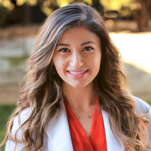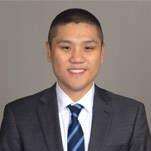We Are DIA
Career Column
The Interview Process: A Peer Guide for Students

ood evening, my name is Sara.” No, that’s not good. “Hello.” Let me try again. “Hi, my name is Sara, and I am sincerely interested in the Medical Affairs position at your company.” No, I don’t like the sound of that.
Maybe if I smile while saying it? “This job seems like the perfect match for my abilities and interests.” Don’t forget to make eye contact. Sara stands staring into the mirror. Proper interview performance is an art in itself. As always, practice makes perfect. Sara isn’t just worried about what she says. She is taking several measures to perfect the art of confident professional presentation, including social skills and a professional presence.
Through our experiences as young aspiring professionals, we have gathered some recommendations and research findings that we have found helpful and which may guide you to a more successful interview.
Prior to your interview, take the time to research top interview tactics. However, finding the right resources can be a challenge. A book we found extremely helpful was 15 Minutes to a Better Interview by Russel Tuckerton. It outlines the most critical steps in properly presenting yourself and your qualifications. The book emphasizes the importance of understanding why a question is asked and answering it genuinely, as opposed to memorizing typical questions and answers. There will be times when you are asked about a professional experience that you might not have faced yet. Tuckerton suggests that, in these cases, it is advisable to provide an alternative experience that relates to the professional scenario originally asked about. By doing so, you provide insight on your analytical skills and offer a different perspective. A genuine and natural answer is often more valued than a scripted one.
Another tactic is to see the interview from the interviewer’s point of view. An article in Harvard Business Review, Strategies of Effective Interviewing, outlined some of the interviewer’s perspectives and shared fundamental interview strategies still implemented today. The article emphasizes the fact that interviewers have a set list of questions, but generally don’t rely solely on the planned questions to guide the conversation. Every interviewer is ultimately searching for a candidate that can carry the interview conversation naturally. We can benefit from knowing this as an interviewee by swaying the conversation in the direction that best portrays our assets. Don’t rely on the interviewers to structure the whole conversation; in our experience, investing in the opportunity to ask questions and take turns in steering the conversation allows us to lead the interviewer towards our strengths.
Additionally, interviewers often ask rhetorical questions that can feel misleading. Instead of trying to analyze why the interviewer asked the question in the first place and thinking of an answer that they are looking for, we must allow ourselves to trust that our genuine response to the question can have higher merit. If we take the time to reflect on what that question truly means to us, we are more likely to have an authentic and standout answer. By looking at the interview from the interviewer’s point of view, we get the benefit of knowing how to properly prepare. Also, a good foundation of interview preparedness consists of strong verbal communication skills. Seek out opportunities to refine your communication skills by practicing with others who will provide you with honest and constructive feedback.
One way we found beneficial in obtaining this skill is by attending conferences. For example, by attending the American Pharmacists Association Midyear Regional Meeting, we sat in on a leadership training presentation titled The Student Pharmacist Guide to Successful Networking. It was presented by a Hiring Manager, who shared her expectations during networking and hiring events. We also got an opportunity to be a part of a policy proposal session, where we discussed problems that are significant to the US government and proposed implementing legislative solutions. Becoming aware of current healthcare issues put us ahead of other candidates that might not have invested the time in making themselves knowledgeable and well-rounded. We had the opportunity to utilize all these skills during the Career Connection Receptions, where we met representatives from various pharmaceutical disciplines. Attending conferences provided us with numerous opportunities to use a more hands-on approach, while honing communication skills in professional settings.
Nonverbal communication also plays a critical role in the interview process. Interviewers spend roughly half the time listening to what you say, but also how you say it, all while their eyes are on you the entire time. Therefore, it’s important to assess your nonverbal communication and improve it before reaching the interview stage. A personal experience on nonverbal communication that we can both share is when we were interviewing for seats at our school. Our interviews were in a group format, where the interviewees would be seated around a table, while answering questions. Although this process may seem more daunting than a one-on-one interview, there are aspects of it that can play to your benefit. A strategy we utilized in this setting was to be cognizant of nonverbal actions of the other candidates and treating them as mirrors to assess our own. How are their postures? Are they maintaining eye contact? Are they making unnecessary body movements? Am I? At times, we project negative nonverbal communication that can make us less appealing as candidates. We found that occasionally looking around the table helped in answering these questions about ourselves. Simple emphasis on eye contact, posture, and physical gestures can solidify your presence.
This tactic clearly isn’t applicable within one-on-one interviews, but there are ways to circumvent nonverbal communication problems. Like verbal communication, practicing with friends, family and colleagues can help to improve nonverbal communication skills by having them assess your body language and movements while you receive and respond to questions. Another way is to record yourself as you go through mock interview questions to capture any flaws and areas of weakness you would not have otherwise noticed.
She stands up straight, shoulders back, and with direct eye contact. “Good evening. My name is Sara Jones, and it would be an honor to be a part of your company’s Medical Affairs team.” Just as Sara finds comfort in her confidence, we hope that you too can utilize these strategies to find comfort in yours. With each moment that we practice, we are one step closer to obtaining the professional opportunity that we seek.
About the Authors

Sabina Zamanova is a PharmD Candidate, who has obtained her BS in Biology from Temple University. She is currently partaking in an internship with NEMA Research Inc. focusing on medical writing. She has a strong interest in exploring Medical Affairs and Pharmaceutical Marketing post obtaining her PharmD.

Steven Lee is a PharmD Candidate at Temple University in Philadelphia. He previously earned his BA at Hunter College in New York. His areas of interest include drug safety, pharmacoeconomics, and health policy.

